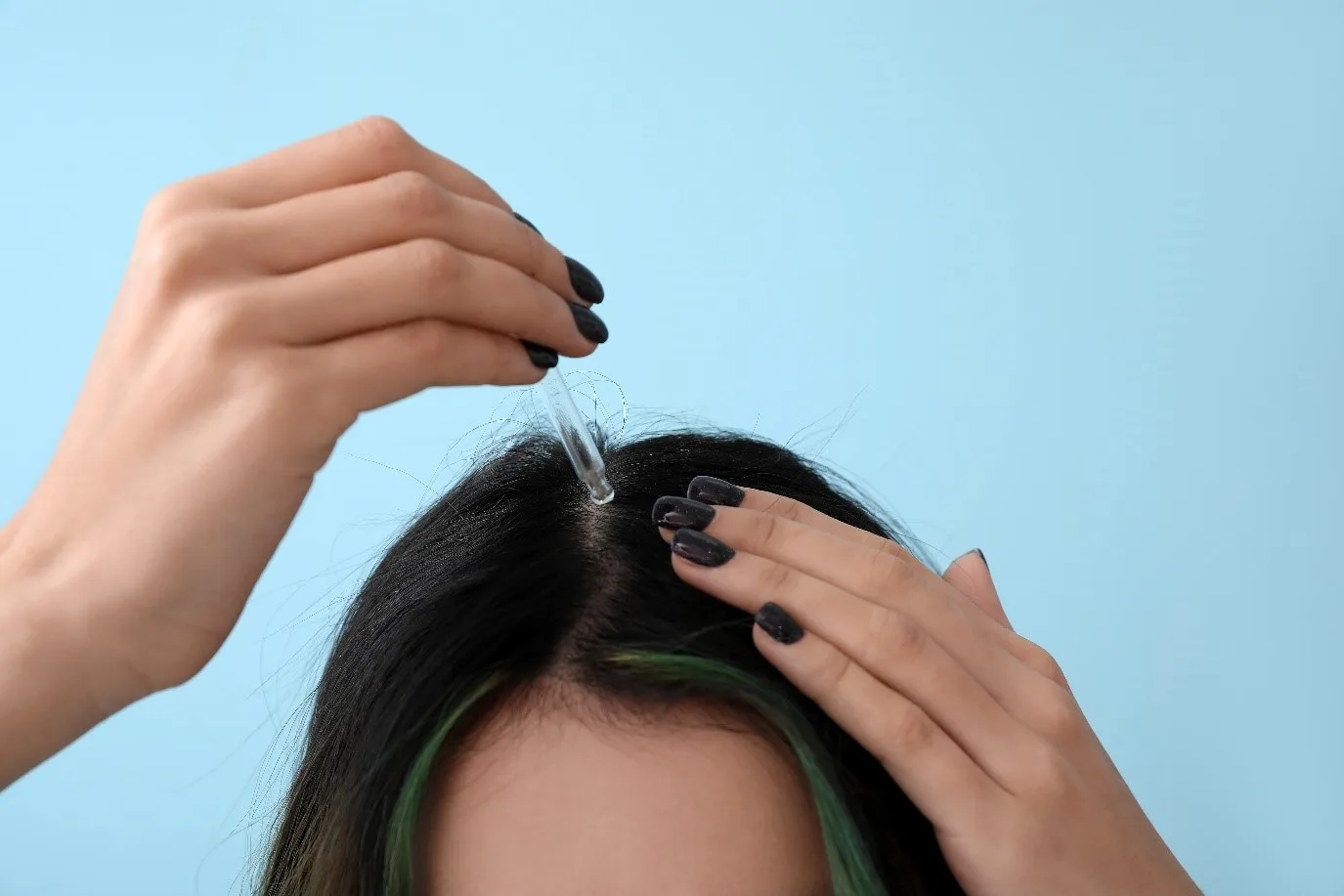UNDERSTANDING SCALP SERUM AND ITS USES

Is a scalp serum what you’ve been missing in your hair care routine?
Serums are all the rage at the moment. Almost every influencer will have some form of serum that they’re promoting, extolling the various benefits of that serum. But what exactly are these serums and does a hair scalp serum actually work?
What are scalp serums and their uses?
Can you use a hair serum for scalp?
What are scalp serums and their uses?
Serum is basically a fancier word for a liquid. When you hear the word ‘serum’, it implies that this solution was specifically extracted for a particular purpose. So, scalp serums are liquid or fluids that have been designed specifically for your scalp.
Serums add another facet to your hair care, going beyond just shampoos and conditioners. It’s about giving your scalp a bit of extra attention when required. When you wash your hair too often, it can strip away your natural oils and leave your scalp damaged. Serums can act as stop-gap measures to reduce your shampoo use or counter it. Similar to how you might use dry shampoos.
These serums generally contain natural ingredients and chemicals, which have been combined to solve certain scalp ailments and provide varying benefits. Here are a few scalp serums with their use-case:
- Rejuvenating serum
- Cleansing or Exfoliating serum
- Oil regulating serum
- Scalp serum for dandruff
- Hydrating or dry scalp serum
- Serums for damaged or irritated skin
- Hair root repair and growth serums
- pH balancing serum
- Antioxidant serums used to prevent premature ageing
The most commonly used serums are the exfoliating serum, hydrating serum, and the rejuvenating serum. You’ll get various combinations of ingredients that give you the required outcome. The popular ingredients are tea tree oil, aloe vera, charcoal, argan oil , lavender oil, rosemary oil, apple cider vinegar, and witch hazel.
Can you use a hair serum for scalp?
You might be wondering how to apply hair serum on scalp, but you might want to hold off on that. Scalp serums and hair serums are slightly different in nature, because they cater to different requirements. It all depends on what the manufacturer says.
For example, using a hair serum for oily hair might not work on an oily scalp. The constitution of the hair strand and the scalp is entirely different, which dictates the use of any serum. However, there are certain serums which are designed to be used on the hair and the scalp. Be careful when approaching these products and always look for information from the manufacturer on how to apply hair serum on scalp.
How to use scalp serums?
-
Select the right one-
You’ll find a multitude of serums in the market, so you need to find the one that is meant for your particular problem. If you have dandruff, you need a scalp serum for dandruff. -
Check the ingredients-
This is often overlooked but is a vital step. You need to match the ingredients to your requirements. Aloe vera is useful for grease control, apple cider vinegar for pH balance, tea tree oil for hydration and witch hazel for antioxidant properties. Understand how these combinations work with each other while selecting serums. -
Patch test-
Always conduct a patch test before using a new product on your body. Take a small amount of the serum and apply it to a part of your skin, usually behind the ear. Leave it for 48 hours and see if there is any reaction. Only if you have no reaction should you apply it to your scalp. -
Clean your head-
Most people apply a serum only after cleaning their hair and scalp. Use a scalp shampoo that gets rid of all the germs and dirt, before applying the scalp serum. But this depends on the type of serum and what your needs are. -
Apply-
Take a few drops of the scalp serum, or as much is recommended by the manufacturer, and apply it onto your scalp. Massage it in thoroughly, ensuring a complete coat on your entire scalp. The act of massaging can also increase blood flow to the scalp and bring much needed nutrients. -
Leave it in-
Serums are not meant to be washed out, unless specified. Leave the serum on your scalp and let it do the work. You can apply it during the day or at night before going to bed. Choice is yours based on how your body responds.
Risks with scalp serums
As with any product, there are always potential drawbacks of using scalp serums. Most are safe, but you should be aware of the following:
-
Wrong serum-
Choosing the incorrect serum can have unintended consequences. If you use a hydrating serum for a dandruff-prone scalp, it can increase your dandruff rather than solving it. -
Allergic reactions-
There is always a possibility of allergic reactions to serums. They are full of chemical concoctions and might cause a reaction on your scalp, leaving you with breakouts and itching. This is why patch tests are important. -
Using hair serums-
Be careful when using hair serums on scalps. Most of them should work, but some might not. Using a hair serum for oily hair on your scalp can potentially dehydrate to an excessive amount. -
Combining products-
Using serums and too many other products can lead to disaster. They might react with each other and cause inflammation on your scalp. Use sparingly and only after understanding the impact of each product. -
Quantity and frequency-
Using too much serum, and too often, is also not advisable. Always read the instructions before using large amounts of serum every day.
Scalp serums might be beneficial for you, but they cannot replace shampoos and conditioners. It should only be seen as an addition to your routine as it cannot take on the role of a cleanser and conditioner. If you want to reduce the number of products you use, you might want to try the Head and Shoulders 2 in 1 Cool Menthol , that gives you a shampoo and conditioner in one. This can keep your scalp clean by getting rid of harmful germs and at the same time can bring moisture back to your dry, damaged hair strands. Always remember to keep your head clean and only introduce serums if you really need it.



